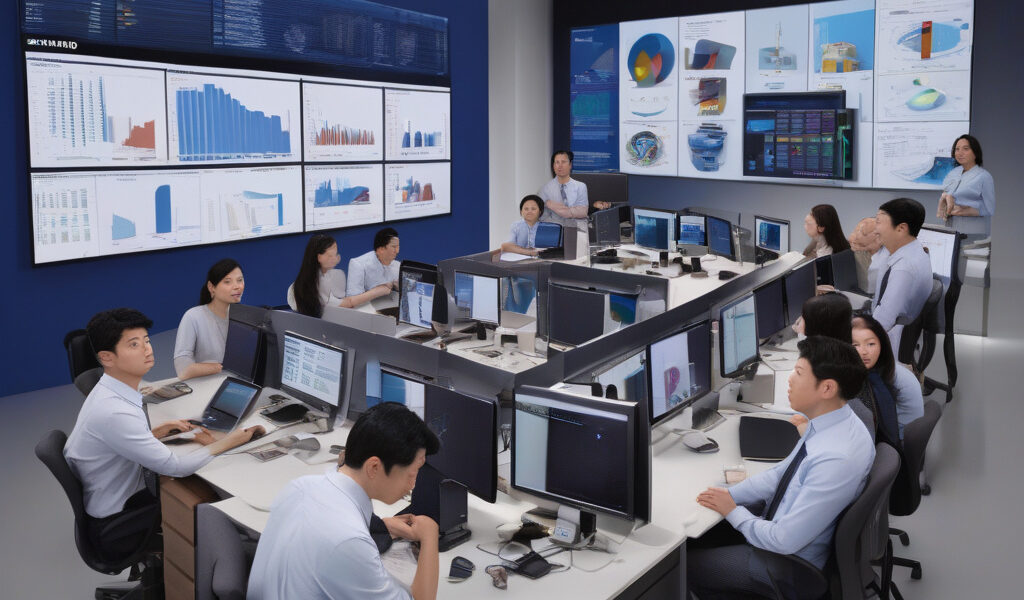Samsung Faces Slowdown in AI Chip Sales
Samsung, a tech giant known for its innovative products, is currently facing a slowdown in its AI chip sales. This comes as the company is grappling with rising challenges in its AI and memory divisions amidst declining profits.
The AI chip market has been experiencing rapid growth in recent years, with increasing demand for artificial intelligence capabilities in various industries. Samsung, aiming to capitalize on this trend, has heavily invested in developing AI chips to power cutting-edge technologies such as autonomous vehicles, smart devices, and data centers. However, despite its efforts, the company is now encountering obstacles that are impeding its progress in this lucrative market.
One of the primary reasons behind Samsung’s slowdown in AI chip sales is the intensifying competition from other major players in the industry, such as Nvidia and Intel. These companies have established a strong presence in the AI chip market and are continuously innovating to meet the evolving needs of customers. As a result, Samsung is finding it challenging to differentiate its products and gain a competitive edge in the market.
Moreover, the overall economic uncertainty and geopolitical tensions are also contributing to the decline in Samsung’s AI chip sales. The ongoing trade disputes and supply chain disruptions have disrupted the company’s manufacturing processes and hindered its ability to meet the demand for AI chips. Additionally, the global pandemic has further exacerbated the situation by dampening consumer spending and slowing down the adoption of new technologies that rely on AI chips.
In addition to its struggles in the AI chip market, Samsung is also facing challenges in its memory division, which has been a key revenue driver for the company. The memory market is highly cyclical, with prices fluctuating based on supply and demand dynamics. Samsung, being one of the largest memory chip manufacturers in the world, is particularly vulnerable to these fluctuations. The recent downturn in the memory market has put pressure on Samsung’s profitability and forced the company to reevaluate its business strategy.
To address these issues and revive its sales growth, Samsung needs to adopt a proactive approach and implement strategic measures. One possible solution is to focus on diversifying its product portfolio and exploring new growth opportunities in emerging technologies such as 5G, IoT, and cloud computing. By expanding into these high-growth areas, Samsung can reduce its reliance on the volatile memory market and create new revenue streams to offset the decline in AI chip sales.
Furthermore, Samsung should prioritize innovation and R&D investment to stay ahead of the competition and develop next-generation AI chips that offer superior performance and efficiency. By leveraging its technological expertise and collaborating with industry partners, Samsung can strengthen its position in the AI chip market and regain market share.
In conclusion, Samsung’s slowdown in AI chip sales is a concerning development that underscores the challenges facing the company in the current business environment. By addressing the issues in its AI and memory divisions and pursuing new growth opportunities, Samsung can overcome these challenges and position itself for long-term success in the competitive tech industry.
Samsung, AI chip sales, challenges, declining profits, competition, innovation, memory division, emerging technologies, growth opportunities, strategic measures, R&D investment, market share












